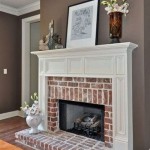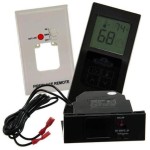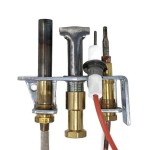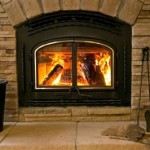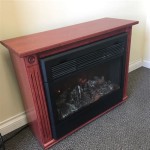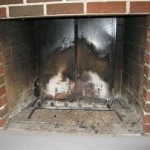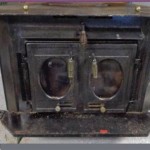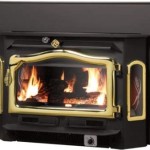Wood Fireplace Blowers: An Essential Aspect for Enhancing Heat Distribution
A wood-burning fireplace adds a touch of warmth and ambiance to any home during the cold winter months. However, the heat produced by a wood fire tends to rise directly upwards, often leaving the lower areas of the room cold and uncomfortable. This is where a wood fireplace blower comes into play.
A wood fireplace blower is a device that circulates the warm air produced by the fire throughout the room. It consists of a fan mounted on a housing that is typically installed on the fireplace's top or back. The blower draws in cold air from the lower parts of the room and, after passing it over the hot surfaces of the fireplace, distributes the warmed air into the living space.
Benefits of a Wood Fireplace Blower
Installing a wood fireplace blower offers several benefits, including:
- Improved Heat Distribution: A blower ensures that the heat from the fireplace is evenly distributed throughout the room, eliminating cold spots and creating a more comfortable environment.
- Increased Efficiency: By circulating the warm air, a blower helps the fireplace heat a larger area with less fuel consumption, leading to increased efficiency and reduced wood usage.
- Reduced Air Stratification: A blower prevents warm air from accumulating at the ceiling, resulting in a more consistent temperature from floor to ceiling.
- Safety Enhancement: Blowers assist in maintaining a cooler temperature on the fireplace's outer surfaces, reducing the risk of burns or fires.
Choosing the Right Wood Fireplace Blower
When selecting a wood fireplace blower, consider the following factors:
- Fireplace Size: Choose a blower with a fan size that is appropriate for the volume of the fireplace. A too-small blower will be ineffective, while a too-large blower may create excessive noise.
- Fireplace Type: Blowers are available for different types of fireplaces, such as zero-clearance fireplaces, masonry fireplaces, and prefabricated fireplaces. Ensure that the blower is compatible with your fireplace.
- BTU Output: The blower's BTU output should match or exceed the heat output of the fireplace. This ensures efficient heat distribution and prevents the blower from overheating.
- Noise Level: Look for blowers that operate quietly, as excessive noise can be distracting.
Installation and Maintenance
Installing a wood fireplace blower typically involves attaching the housing to the fireplace and wiring it to a power source. Consult the manufacturer's instructions for specific installation guidelines.
Regular maintenance is essential to ensure the longevity of the blower. Clean the filter regularly and lubricate the motor as per the manufacturer's recommendations. Additionally, inspect the blower periodically for any signs of wear or damage and replace it if necessary.
By adding a wood fireplace blower to your fireplace system, you can significantly improve heat distribution, enhance comfort, and increase efficiency. Choosing the right blower and following proper installation and maintenance practices will ensure years of reliable operation and a more enjoyable fireplace experience.

Why Should I Get A Fireplace Blower For My Masonry

Fireplace Efficiency Blowers And Why You Should Have One

Small Wood Stove Fan 4 Blade Fireplace For Burning Heat Powered Accessories Silent Operation Circulating Warm Air Non Electric Com

3 Blade Mini Fireplace Fan Furnace Air Blower For Wood Log Burner Eco Friendly Heat Powered Stove China Home Appliance Made In Com

How Does A Fireplace Blower Work Learn About Blowers

1pc Wood Stove Fan Fireplace 180 Rotation Non Electric Thermoelectric 6 Blades Fans Silent Motors Push Horizontal Air Flow Heat Powered Burning

How To Replace Your Rsf Fireplace Blower Fan

Regency Blower Kit Most Wood Stoves 846 515 Woodchimney Com

Wood Stove Fan Fireplace Heat Powered Non Electric For Log Burner Burning Quiet Motor Circulating Warm Air Saving Com

Oscillating Wood Stove Fan Fireplace For Warm Air Saving Furnace Blower Log Burner China Made In Com
Related Posts

